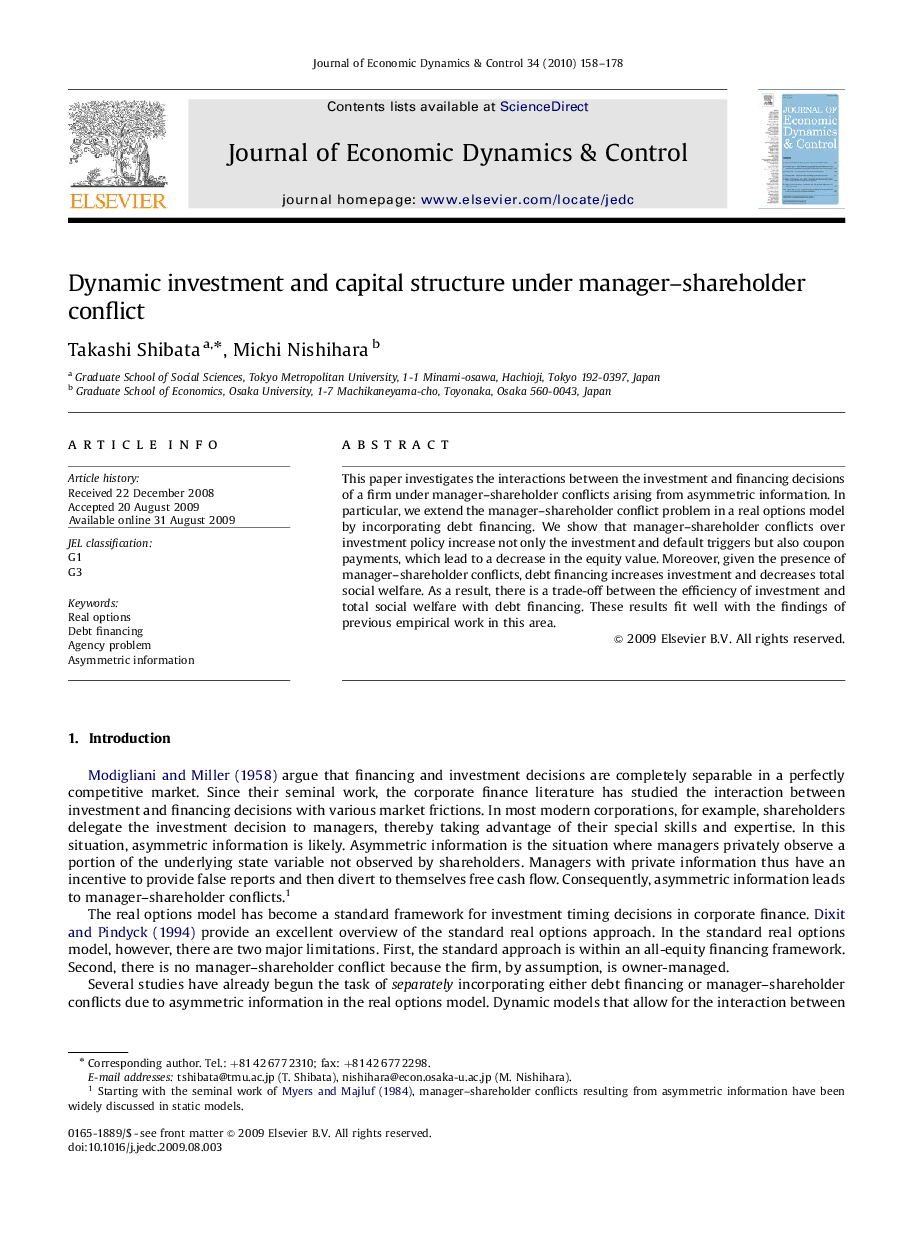| Article ID | Journal | Published Year | Pages | File Type |
|---|---|---|---|---|
| 5099762 | Journal of Economic Dynamics and Control | 2010 | 21 Pages |
Abstract
This paper investigates the interactions between the investment and financing decisions of a firm under manager-shareholder conflicts arising from asymmetric information. In particular, we extend the manager-shareholder conflict problem in a real options model by incorporating debt financing. We show that manager-shareholder conflicts over investment policy increase not only the investment and default triggers but also coupon payments, which lead to a decrease in the equity value. Moreover, given the presence of manager-shareholder conflicts, debt financing increases investment and decreases total social welfare. As a result, there is a trade-off between the efficiency of investment and total social welfare with debt financing. These results fit well with the findings of previous empirical work in this area.
Related Topics
Physical Sciences and Engineering
Mathematics
Control and Optimization
Authors
Takashi Shibata, Michi Nishihara,
